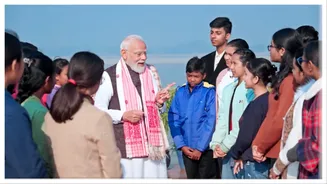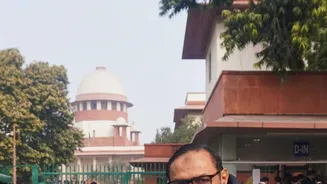Reporting the Incident
When faced with a distressing event, the initial step involves reporting it to the appropriate authorities. In India, this typically means filing a First
Information Report (FIR) with the local police station. The FIR serves as the official record of the incident and triggers the investigation process. It is essential to provide accurate and detailed information, including the specifics of what happened, the location, and any witnesses. One should ensure that the FIR accurately reflects the events, as this document is pivotal for future legal proceedings. Legal experts advise that one should report the incident as promptly as possible to avoid potential challenges or complications down the line. The quicker the report, the sooner the investigation can begin, thereby gathering evidence and supporting the case's strength.
Medical Examinations and Support
Medical procedures are critical following a traumatic event. Depending on the nature of the incident, the individual may need medical attention to treat physical injuries or receive mental health support. In instances involving sexual assault or other forms of violence, a medical examination becomes crucial for collecting evidence and ensuring the individual's well-being. Hospitals and healthcare professionals must follow specific protocols in such cases, including preserving forensic evidence if needed. Moreover, access to psychological support, such as counseling or therapy, is essential for the victim's recovery. The focus should be on providing comprehensive medical care and support to help the individual heal and move forward. One should promptly seek medical attention to address any immediate health concerns and also begin the path towards emotional recovery.
Legal Assistance: Key Roles
Seeking legal assistance is a vital step in navigating the Indian legal system after experiencing a traumatic event. A lawyer can provide invaluable guidance, representing the individual's interests and ensuring their rights are protected throughout the legal process. Lawyers assist in preparing legal documents, advising on legal options, and presenting the case in court. Furthermore, they can connect individuals with relevant support services, such as counseling or financial aid. Choosing an experienced lawyer who specializes in the type of case is crucial. The legal representative should have knowledge of Indian law and a history of similar cases. A lawyer's expertise can make a significant difference in the outcome of the case and help the individual obtain justice.
Rights and Protections
Understanding the legal rights and protections available in India is essential for anyone involved in a legal case. Numerous laws and regulations are in place to safeguard the rights of individuals, particularly in cases involving violence or abuse. These protections include the right to privacy, the right to a fair trial, and the right to be treated with dignity and respect. The government has also established various schemes and programs to support victims and ensure access to justice. These include financial assistance, counseling services, and protection from further harm. Lawyers can also help individuals understand their rights and ensure that they are fully aware of the legal protections available to them. One must familiarize themselves with their entitlements.
The Investigation Process
Once an FIR is filed, the police begin the investigation process. This may involve interviewing witnesses, gathering evidence, and conducting forensic examinations. The investigation process aims to determine the facts of the case and identify the perpetrators. Police officers will collect evidence, such as witness statements, forensic reports, and other relevant information. It is imperative for the individual to cooperate fully with the police investigation by providing accurate information and assisting with inquiries. The investigation process is a crucial phase in the legal procedure, and one must stay in regular communication with their legal representation throughout this period. The aim of the investigation is to gather the strongest possible evidence to support the case.
Court Proceedings Overview
If the police investigation yields enough evidence, the case may proceed to court. Court proceedings in India can be complex and time-consuming, and the individual must be prepared to present their case. The court will examine the evidence presented by both sides. They will then hear arguments from the prosecution and defense lawyers before rendering a verdict. The individual may be required to testify in court, providing their account of the events. The court process may involve pre-trial hearings, evidence presentation, and cross-examination of witnesses. The role of the lawyer is very crucial as they guide the client through the judicial process. One should remain patient throughout the court process, as it can take a substantial amount of time and emotional strength.
Victim Support Systems
The Indian legal system provides various victim support systems. These systems aim to assist individuals throughout the legal process and help them recover from their experiences. The support systems include counseling services, financial assistance, and protection from further harm. Governmental and non-governmental organizations offer support services such as legal aid, emotional support, and medical assistance. One should not hesitate to seek help from these support systems. The police also provide victim assistance programs, which may include counseling, information about the legal process, and assistance with accessing other support services. One may find these systems beneficial to navigate through difficult times and ease the recovery process.
Long-Term Recovery Assistance
After the legal proceedings are completed, the individual may still require assistance with their long-term recovery. This can include ongoing mental health support, financial assistance, and support from community-based organizations. Counseling and therapy are key components of long-term recovery, helping the individual to process their experiences and develop coping mechanisms. Financial assistance can help cover medical bills, legal fees, and other expenses associated with the incident. Community-based organizations can also provide support and resources to help individuals rebuild their lives. One should know that recovery is a gradual process and may require continuous effort and support. Seeking continuous assistance will help an individual cope with the trauma.













![[WATCH] 'Real Madrid, Ramadan and rest' - Mohammed Siraj how last-minute World Cup call-up changed February plan](https://g-mob.glance-cdn.com/public/fc/image/ByYT_LEmlrD0.webp)


